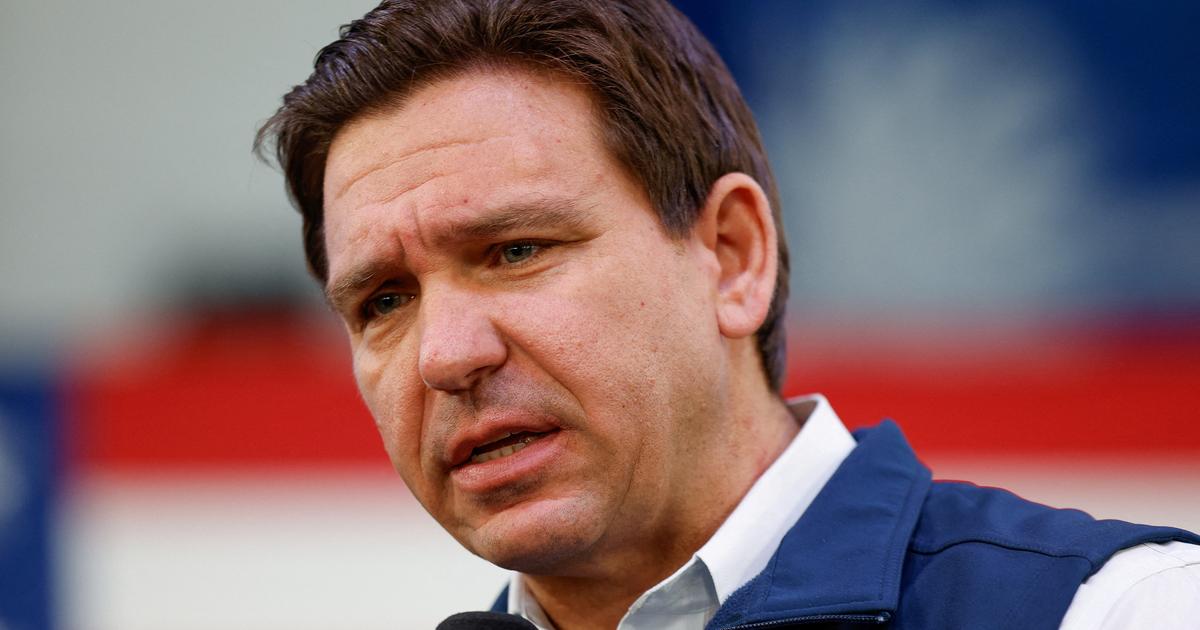Global society
all articles
They clean shoes, sell newspapers or sweets; they advertise in markets for customers restaurants, work as a housemaid or toil as a hewer in the silver mines of the mining town of Potosí. In Bolivia, children work in all parts of the country and in many industries. Sometimes, girls and boys already mallow when they are five years old.
Working boys and girls are found in all Latin American countries - especially in the two largest economies of Brazil and Mexico. But in Bolivia, the poorest country in South America, child labor is deeply rooted. More than 700,000 children work in the country, they must contribute to the survival of their families.
To protect them, the Bolivian socialist government passed a law five years ago that allowed child labor at the age of ten, under certain conditions. Child rights activists considered it more progressive.
But the regulation was under international pressure right from the start, especially from the International Labor Organization (ILO). She has long written the fight against child labor on the flags.
Meanwhile, the Bolivian government has largely withdrawn the law in the controversial passages, but the dispute remains. Two points of view compete in it: those of the EU and the United Nations, which consider child labor to be exploitation, which should be abolished as soon as possible; and the Bolivian, where child labor is accepted as a social reality and cultural feature that needs to be regulated. In the midst of it: hundreds of thousands of children, many of whom fight for a right to work. (Read how a child worker thinks about the dispute.)
In Potosí the topic is even more important than elsewhere in Bolivia. 180,000 people live here at the foot of the mountain Cerro Rico. Slaves and indigenous forced laborers used to work in the silver mines - even today children.
"They are not poor children"
Luz Rivera, 52, has accompanied and looked after child laborers in Potosí for 18 years. She works for the city's Caritas Social Pastoral and says, "It's not poor children who need to work, but self-confident people who are proud of what they do."
Some, Rivera said, would start selling nylon bags at five, others would help their mothers. "Child labor is a social reality in Bolivia." One should not scourge them, but change the reasons for their existence. "And as long as that does not happen, you have to enable the children to work in dignity and protection from exploitation."
Child labor is so commonplace in Bolivia that there are even separate unions for the boys and girls who work. Many experts in the country are of the opinion that child labor is not a bad thing per se.
The fact that boys and girls take on obligations at an early age in the social and family community is above all part of indigenous culture, says psychologist Jorge Domic. Especially among the indigenous people, who make up about half of the 11.5 million inhabitants, it is normal that children contribute to the family's livelihood. "Work can also promote personality development in children," Domic emphasizes in an interview.
The psychologist believes that a ban on child labor is wrong as long as large parts of the population suffer from poverty. Instead, one should acknowledge the social reality and give it a legal framework.
This is precisely the idea behind "Law 548", the Children and Youth Act, which Bolivia passed in July 2014. The rules gave the children a ten-year right to work. However, this was subject to tight conditions. First, the parents had to consent, then the approval of the state "child rights office" was necessary. Some activities, for example in mining, were completely excluded. In addition, medical examinations were mandatory. Above all, it had to be certain that the children went to school.
The law has taken up the demand of working children, "finally true and taken seriously by the policy and to be appreciated in their daily life performance," says Jürgen Schübelin, Latin America speaker at the Kindernothilfe in Duisburg. For the first time, a Latin American government has acknowledged that "hundreds of thousands of children daily need to contribute to the livelihoods of families." The law promised working boys and girls better protection and guaranteed their rights, jurors praised.
Why the ILO put pressure
But especially the ILO and Unicef were appalled. In principle, they regard child labor as a form of exploitation. The United Nations is committed to abolishing all forms of child labor by 2025. In recent years, child labor has declined worldwide, yet still work according to the United Nations Children's Fund Unicef still 152 million girls and boys. These children, UNICEF believes, "work under conditions that deprive them of their elementary rights and opportunities."
In response to the law in Bolivia, the ILO warned against allowing dangerous activities for children just because, for example, they took place within the family. In addition, the organization spoke of an "intergenerational vicious circle of poverty and child labor".
Working children have to take responsibility early on, the work can overtax them physically and emotionally, with possible long-term damage. In addition, children are often paid less than adults.
From the beginning, the pressure on the Bolivian government was therefore great to withdraw the corresponding provisions of the law. And when the United States threatened to strip Bolivia of tariff advantages, the parliamentarians responded. In December they collected the most controversial passages from "Ley 548". Formally, children are now allowed to resume paid employment at the age of 14.
The law also failed due to poor implementation
Jürgen Schübelin calls the circumstances of the abolition "embarrassing". But worse is it that the children had lost their rights and guarantees, such as attending school, and were now again exposed to "collective ostracism". Not a single child, who had to contribute to his own life and that of his family with his work until now, is exempt after the abolition of bringing money home, criticized Schübelin. "In no single Bolivian family improves anything by this abolition".
However, the experts also blame the Bolivian government for the failure of the "Ley 548". Especially in smaller cities and rural communities, the law was never really implemented. The child rights offices were equipped with too little money and at the same time with so many tasks considered that for the actual mandate hardly remained capacity.
Often there was a lack of employees or the necessary knowledge of the regulations. "Now it's the same as before or even worse," psychic Domic says. "The girls and boys are again vulnerable and in a vulnerable position!"
What do those affected say?
This article is part of the project Global Society, for which our reporters report from four continents. The project is long-term and supported by the Bill & Melinda Gates Foundation.
What is the project Global Society?
Under the title Global Society, reporters from Asia, Africa, Latin America and Europe will be reporting on injustices in a globalized world, socio-political challenges and sustainable development. The reportages, analyzes, photo galleries, videos and podcasts appear in the Politics Department of SPIEGEL. The project is long-term and will be supported over three years by the Bill & Melinda Gates Foundation (BMGF).
Are the journalistic contents independent of the foundation?
Yes. The editorial content is created without the influence of the Gates Foundation.
Do other media have similar projects?
Yes. Major European media such as "The Guardian" and "El País" have created similar sections on their news pages with "Global Development" or "Planeta Futuro" with the support of the Gates Foundation.
Was there already similar projects at SPIEGEL ONLINE?
SPIEGEL ONLINE has already implemented two projects in recent years with the European Journalism Center (EJC) and the support of the Bill & Melinda Gates Foundation: The "Expedition The Day After tomorrow" on Global Sustainability Goals and the journalistic refugee project "The New Arrivals" Several award-winning multimedia reports on the topics of migration and escape have emerged.
Where can I find all the publications on the Global Society?
The pieces can be found at SPIEGEL ONLINE on the topic page Global Society.















